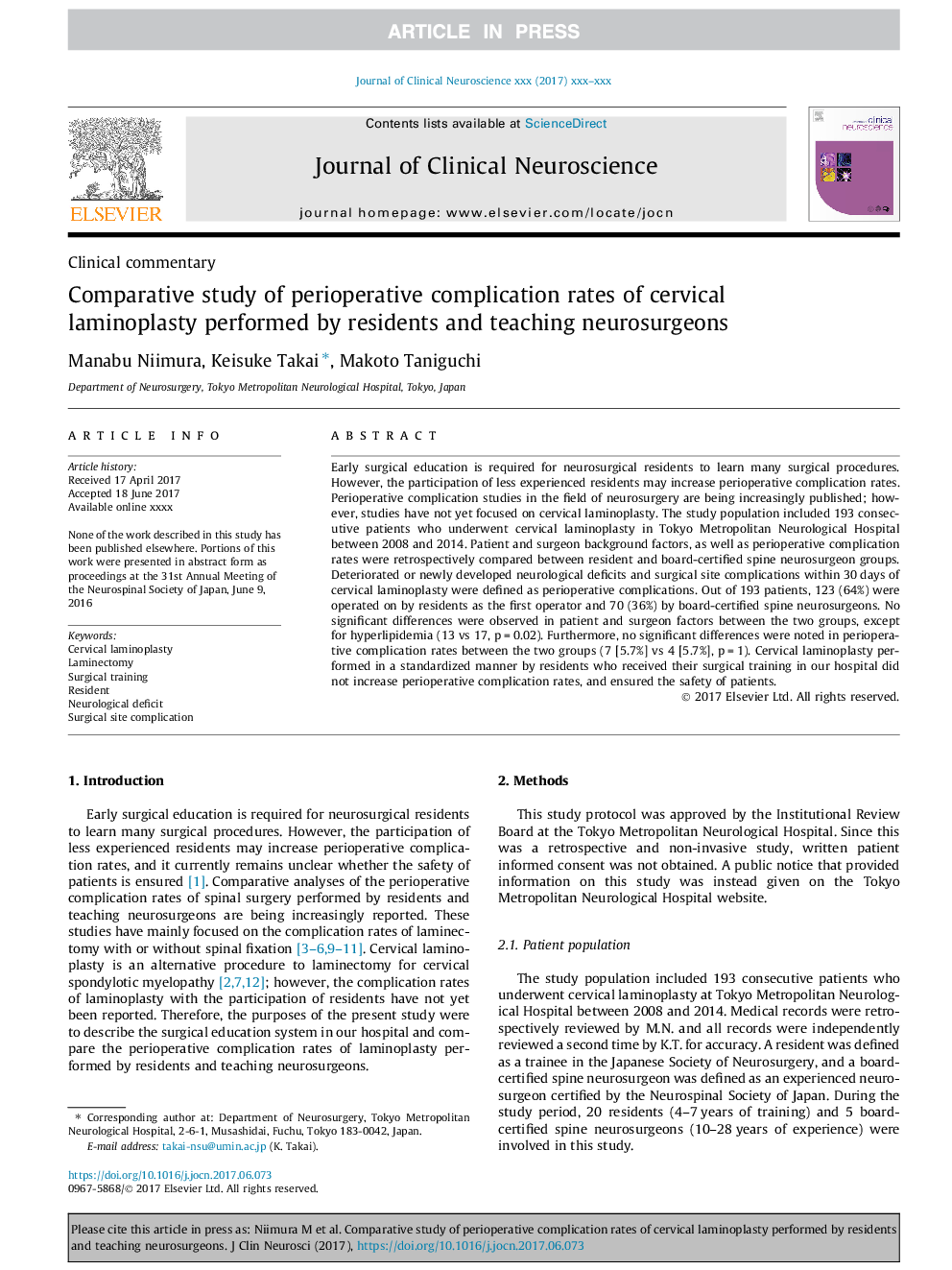| Article ID | Journal | Published Year | Pages | File Type |
|---|---|---|---|---|
| 8685513 | Journal of Clinical Neuroscience | 2017 | 4 Pages |
Abstract
Early surgical education is required for neurosurgical residents to learn many surgical procedures. However, the participation of less experienced residents may increase perioperative complication rates. Perioperative complication studies in the field of neurosurgery are being increasingly published; however, studies have not yet focused on cervical laminoplasty. The study population included 193 consecutive patients who underwent cervical laminoplasty in Tokyo Metropolitan Neurological Hospital between 2008 and 2014. Patient and surgeon background factors, as well as perioperative complication rates were retrospectively compared between resident and board-certified spine neurosurgeon groups. Deteriorated or newly developed neurological deficits and surgical site complications within 30 days of cervical laminoplasty were defined as perioperative complications. Out of 193 patients, 123 (64%) were operated on by residents as the first operator and 70 (36%) by board-certified spine neurosurgeons. No significant differences were observed in patient and surgeon factors between the two groups, except for hyperlipidemia (13 vs 17, p = 0.02). Furthermore, no significant differences were noted in perioperative complication rates between the two groups (7 [5.7%] vs 4 [5.7%], p = 1). Cervical laminoplasty performed in a standardized manner by residents who received their surgical training in our hospital did not increase perioperative complication rates, and ensured the safety of patients.
Related Topics
Life Sciences
Neuroscience
Neurology
Authors
Manabu Niimura, Keisuke Takai, Makoto Taniguchi,
